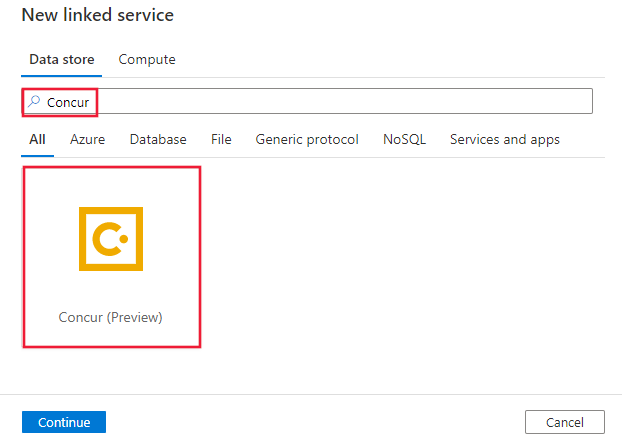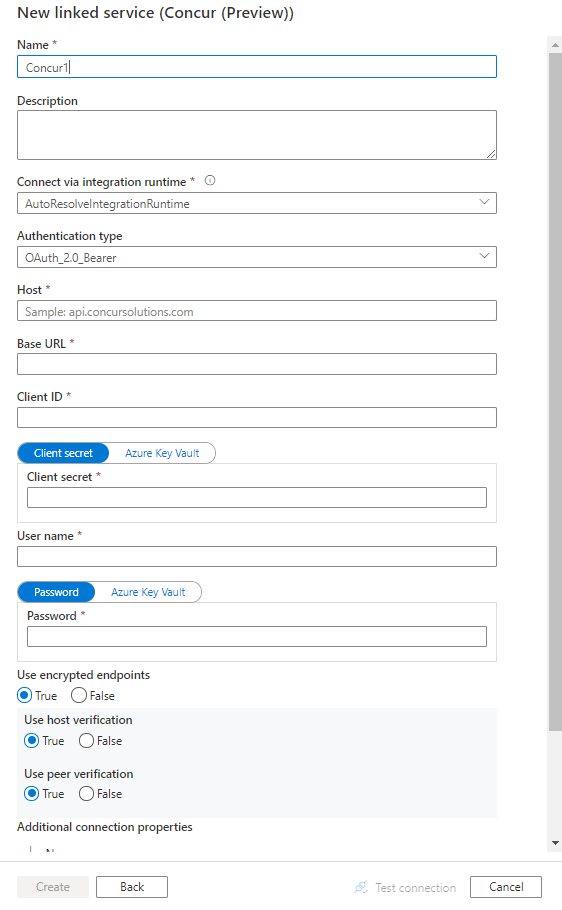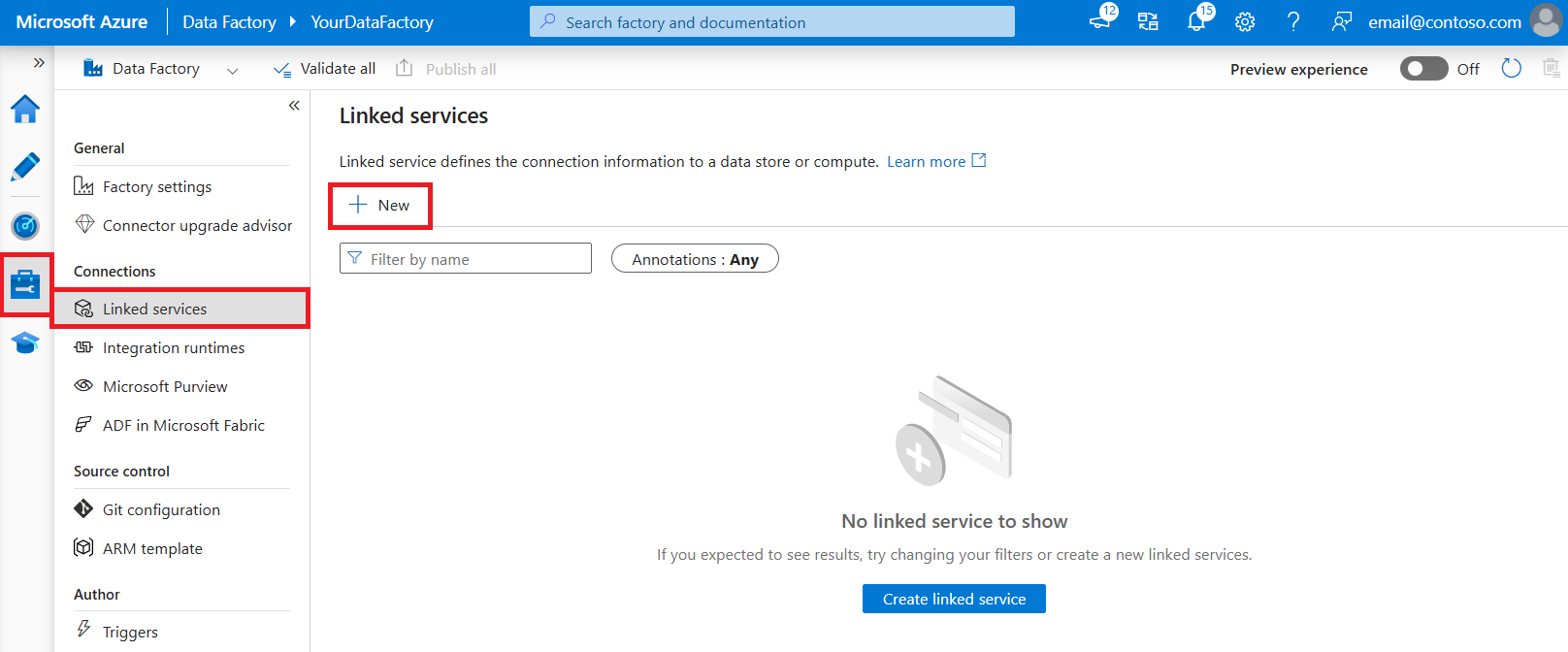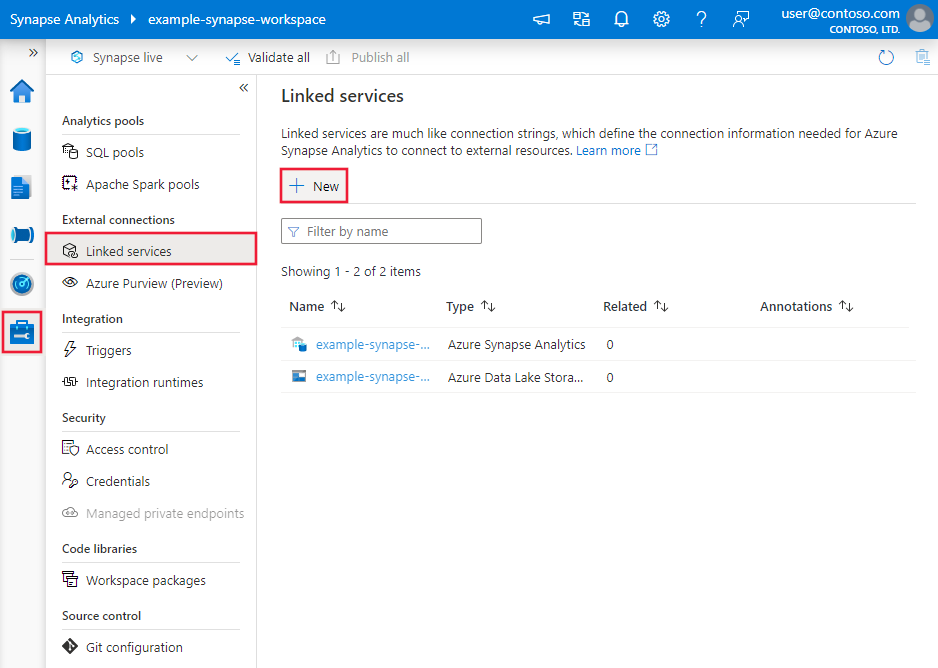Note
Access to this page requires authorization. You can try signing in or changing directories.
Access to this page requires authorization. You can try changing directories.
APPLIES TO:  Azure Data Factory
Azure Data Factory  Azure Synapse Analytics
Azure Synapse Analytics
Important
This connector is at End of Support stage. You are recommended to migrate to ODBC connector by installing a driver.
This article outlines how to use the Copy Activity in an Azure Data Factory or Synapse Analytics pipeline to copy data from Concur. It builds on the copy activity overview article that presents a general overview of copy activity.
Supported capabilities
This Concur connector is supported for the following capabilities:
| Supported capabilities | IR |
|---|---|
| Copy activity (source/-) | ① ② |
| Lookup activity | ① ② |
① Azure integration runtime ② Self-hosted integration runtime
For a list of data stores that are supported as sources/sinks, see the Supported data stores table.
The connector supports the Windows versions in this article.
Note
Partner account is currently not supported.
Getting started
To perform the copy activity with a pipeline, you can use one of the following tools or SDKs:
- Copy Data tool
- Azure portal
- .NET SDK
- Python SDK
- Azure PowerShell
- REST API
- Azure Resource Manager template
Create a linked service to Concur using UI
Use the following steps to create a linked service to Concur in the Azure portal UI.
Browse to the Manage tab in your Azure Data Factory or Synapse workspace and select Linked Services, then click New:
Search for Concur and select the Concur connector.

Configure the service details, test the connection, and create the new linked service.

Connector configuration details
The following sections provide details about properties that are used to define Data Factory entities specific to Concur connector.
Linked service properties
The following properties are supported for Concur linked service:
| Property | Description | Required |
|---|---|---|
| type | The type property must be set to: Concur | Yes |
| connectionProperties | A group of properties that defines how to connect to Concur. | Yes |
Under connectionProperties: |
||
| authenticationType | Allowed values are OAuth_2.0_Bearer and OAuth_2.0 (legacy). The OAuth 2.0 authentication option works with the old Concur API which was deprecated since Feb 2017. |
Yes |
| host | The endpoint of the Concur server, e.g. implementation.concursolutions.com. |
Yes |
| baseUrl | The base URL of your Concur's authorization URL. | Yes for OAuth_2.0_Bearer authentication |
| clientId | Application client ID supplied by Concur App Management. | Yes |
| clientSecret | The client secret corresponding to the client ID. Mark this field as a SecureString to store it securely, or reference a secret stored in Azure Key Vault. | Yes for OAuth_2.0_Bearer authentication |
| username | The user name that you use to access Concur service. | Yes |
| password | The password corresponding to the user name that you provided in the username field. Mark this field as a SecureString to store it securely, or reference a secret stored in Azure Key Vault. | Yes |
| useEncryptedEndpoints | Specifies whether the data source endpoints are encrypted using HTTPS. The default value is true. | No |
| useHostVerification | Specifies whether to require the host name in the server's certificate to match the host name of the server when connecting over TLS. The default value is true. | No |
| usePeerVerification | Specifies whether to verify the identity of the server when connecting over TLS. The default value is true. | No |
Example:
{
"name": "ConcurLinkedService",
"properties": {
"type": "Concur",
"typeProperties": {
"connectionProperties": {
"host":"<host e.g. implementation.concursolutions.com>",
"baseUrl": "<base URL for authorization e.g. us-impl.api.concursolutions.com>",
"authenticationType": "OAuth_2.0_Bearer",
"clientId": "<client id>",
"clientSecret": {
"type": "SecureString",
"value": "<client secret>"
},
"username": "fakeUserName",
"password": {
"type": "SecureString",
"value": "<password>"
},
"useEncryptedEndpoints": true,
"useHostVerification": true,
"usePeerVerification": true
}
}
}
}
Example (legacy):
Note the following is a legacy linked service model without connectionProperties and using OAuth_2.0 authentication.
{
"name": "ConcurLinkedService",
"properties": {
"type": "Concur",
"typeProperties": {
"clientId" : "<clientId>",
"username" : "<username>",
"password": {
"type": "SecureString",
"value": "<password>"
}
}
}
}
Dataset properties
For a full list of sections and properties available for defining datasets, see the datasets article. This section provides a list of properties supported by Concur dataset.
To copy data from Concur, set the type property of the dataset to ConcurObject. There is no additional type-specific property in this type of dataset. The following properties are supported:
| Property | Description | Required |
|---|---|---|
| type | The type property of the dataset must be set to: ConcurObject | Yes |
| tableName | Name of the table. | No (if "query" in activity source is specified) |
Example
{
"name": "ConcurDataset",
"properties": {
"type": "ConcurObject",
"typeProperties": {},
"schema": [],
"linkedServiceName": {
"referenceName": "<Concur linked service name>",
"type": "LinkedServiceReference"
}
}
}
Copy activity properties
For a full list of sections and properties available for defining activities, see the Pipelines article. This section provides a list of properties supported by Concur source.
ConcurSource as source
To copy data from Concur, set the source type in the copy activity to ConcurSource. The following properties are supported in the copy activity source section:
| Property | Description | Required |
|---|---|---|
| type | The type property of the copy activity source must be set to: ConcurSource | Yes |
| query | Use the custom SQL query to read data. For example: "SELECT * FROM Opportunities where Id = xxx ". |
No (if "tableName" in dataset is specified) |
Example:
"activities":[
{
"name": "CopyFromConcur",
"type": "Copy",
"inputs": [
{
"referenceName": "<Concur input dataset name>",
"type": "DatasetReference"
}
],
"outputs": [
{
"referenceName": "<output dataset name>",
"type": "DatasetReference"
}
],
"typeProperties": {
"source": {
"type": "ConcurSource",
"query": "SELECT * FROM Opportunities where Id = xxx"
},
"sink": {
"type": "<sink type>"
}
}
}
]
Lookup activity properties
To learn details about the properties, check Lookup activity.
Related content
For a list of data stores supported as sources and sinks by the copy activity, see supported data stores.

